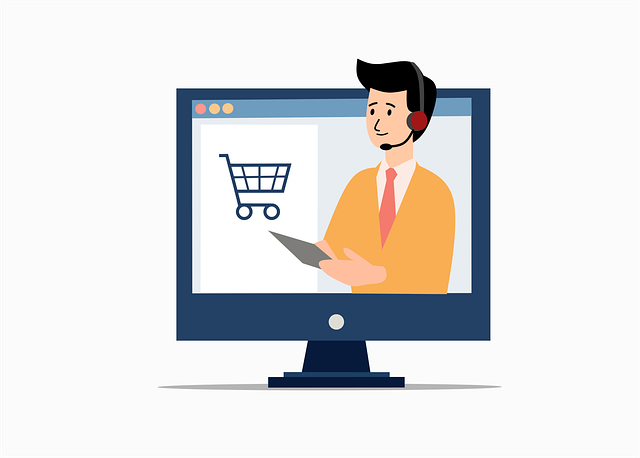Sales funnel automation streamlines customer journey from awareness to loyalty, boosting sales and revenue by automating tasks like lead generation, qualification, nurturing, and conversion. Integration with CRM systems offers personalized lead nurturing via automated email campaigns, enhancing conversion tracking and relationship building. Choosing the right tool involves evaluating CRM integration, analytics for customer behavior understanding, essential metric monitoring, and marketing functionalities; measuring conversion rates optimizes strategies through continuous testing and refinement.
In today’s digital landscape, understanding and optimizing your sales funnel is crucial for success. Sales funnel automation software transforms the way businesses track and convert leads, streamlining processes and enhancing efficiency. This article delves into the essentials of the sales funnel process, explores the myriad benefits of integrating automation tools, highlights key features to seek in such solutions, and provides insights on measuring and optimizing conversion tracking for improved ROI.
- Understanding the Sales Funnel Process
- Benefits of Automation Software Integration
- Key Features to Look for in Automation Tools
- Measuring and Optimizing Conversion Tracking
Understanding the Sales Funnel Process

The sales funnel is a fundamental concept in marketing that visualizes the customer journey from initial awareness to final purchase and loyalty. It’s a structured process designed to guide potential customers through various stages, ultimately converting them into paying clients. Each stage of the funnel represents a critical step where businesses can attract, engage, and retain buyers, leading to increased sales and revenue. By understanding this funnel, businesses can identify areas for improvement and leverage tools like sales funnel automation software to streamline operations.
Sales funnel automation refers to using technology to automate various tasks and processes within the funnel, from lead generation and qualification to nurturing and conversion. This strategy enables businesses to save time, reduce manual efforts, and improve efficiency. With automated systems in place, companies can better manage their customer relationships, enhance reputation management through consistent communication, and even leverage powerful channels like email marketing and WhatsApp marketing to engage with prospects at each stage of the funnel, ultimately driving more conversions.
Benefits of Automation Software Integration

The integration of sales funnel automation software brings a multitude of benefits to businesses, revolutionizing their approach to customer engagement and conversion tracking. By automating various stages of the sales process, companies can save significant time and resources while enhancing overall efficiency. This technology enables seamless coordination between different marketing channels, ensuring that leads are nurtured effectively through personalized communication. For instance, automated email campaigns triggered by specific user actions can keep prospects engaged and guide them towards conversion, all while collecting valuable data for future reference.
Moreover, sales funnel automation software seamlessly integrates with customer relationship management (CRM) systems, providing a comprehensive view of the customer journey. This integration allows businesses to gain deeper insights into customer behavior through robust marketing analytics tools. By analyzing key performance indicators and identifying trends, companies can make data-driven decisions to optimize their strategies. Effective utilization of these features not only improves conversion rates but also fosters better customer relationships by offering tailored experiences throughout the sales funnel.
Key Features to Look for in Automation Tools

When choosing a sales funnel automation tool, it’s crucial to consider several key features that will drive your conversion rates and streamline your sales process. First and foremost, look for robust integration capabilities with your existing CRM (Customer Relationship Management) system. Seamless synchronization between these tools ensures accurate data management and enables efficient tracking of customer interactions throughout the sales funnel.
Additionally, advanced analytics and reporting functionalities are essential. These features provide valuable insights into customer behavior, helping you identify bottlenecks and areas for improvement. Key metrics to monitor include conversion rates at each stage, customer acquisition cost, and return on investment. Many top automation platforms also offer built-in email marketing solutions and WhatsApp marketing capabilities, allowing for targeted communication and enhanced customer engagement.
Measuring and Optimizing Conversion Tracking

Measuring conversion rates is a crucial step in optimizing any sales funnel automation strategy. By tracking how many visitors take a desired action (like making a purchase or signing up for a newsletter), businesses can identify bottlenecks and areas for improvement within their marketing campaigns. Sales funnel automation software provides powerful analytics tools that allow marketers to analyze customer behavior at each stage of the funnel, ensuring no lead is missed. For instance, using automated systems to monitor and analyze missed call text backs can offer valuable insights into consumer preferences and interactions.
Through comprehensive marketing analytics, businesses can fine-tune their landing pages, calls-to-action, and overall messaging to enhance conversion rates. Optimizing these elements based on data-driven insights ensures that the sales funnel is as efficient and effective as possible, maximizing the potential of each lead that enters the system. This iterative process of testing and refining, guided by analytics, is what turns a simple sales funnel into a dynamic and powerful tool for driving business growth.
Sales funnel automation software is transforming how businesses track and optimize their conversion rates. By integrating powerful tools that streamline each stage of the sales funnel, companies can gain valuable insights into customer behavior, improve marketing strategies, and ultimately increase revenue. With the right features in place, such as advanced tracking, data analytics, and automated workflows, businesses can navigate the complex sales journey with precision and efficiency. Remember that continuous measurement and optimization are key to staying competitive in today’s digital marketplace.
